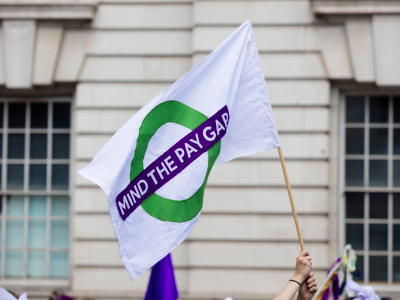Corrosive workplace cultures are silencing the voices of victims and normalising sexual harassment, according to the Equality and Human Rights Commission (EHRC).
The EHRC’s comments come as it published a set of recommendations to better protect people at work.
Focusing on changing culture, greater transparency, and strengthening legal protection, the recommendations call on the government to introduce legislation preventing employers from using non-disclosure agreements to sweep sexual harassment under the carpet and protect their reputation.
The recommendations also call for the time limit to bring a claim of sexual harassment to tribunal to be extended to six months, reflecting the time taken by many individuals to raise complaints.
Under the Equality Act 2010, employers are liable for acts of sexual harassment by one employee towards another unless they have taken all reasonable steps to prevent it. There are currently no minimum requirements, but reasonable steps should include an anti-harassment policy and appropriate procedures for reporting harassment and taking action.
Sexual harassment can be anything from unwelcome physical contact and sexual comments to promises in return for sexual favours and displaying sexually graphic pictures.
The EHRC asked members of the public to share their experiences of workplace sexual harassment while compiling their recommendations.
One woman said, “[I] was 17 [and] had to lock myself in the toilet because of rape jokes turning to threats [and] older waiters joking over who was going to take my virginity when they found out I was a church goer.”
“This was [the] last straw after many other incidents.”
“[My] boss told me that’s just how men talk and to go home.”
Another woman simply said, “I lost my job, my reputation and my health.”
Speaking about the recommendations, Rebecca Hilsenrath, Chief Executive of the EHRC said, “We set out to discover how sexual harassment at work is dealt with by employers and how it is experienced by individuals.”
“What we found was truly shocking.”
“There is a lack of consistent, effective action being taken by employers, and people’s careers and mental and physical health have been damaged as a result.”
“Corrosive cultures have silenced individuals and sexual harassment has been normalised.”
“We need urgent action to turn the tables in British workplaces; shifting from the current culture of people risking their jobs and health in order to report harassment, to placing the onus on employers to prevent and resolve it.”
Sam Smethers, Fawcett Society Chief Executive said, “No woman should face humiliation, intimidation or harassment at work.”
“Sadly it’s becoming increasingly clear not only that it’s an all too common experience but that far too many employers are turning a blind eye or even silencing victims of harassment.”
“It’s time for employers to demonstrate proactively how they will protect their staff and prevent sexual harassment.”
“The first step is to give women the confidence to come forward and then genuinely listen to them when they do, instead of preventing them speaking out or hoping money will make the problem go away.”
“It won’t.”









